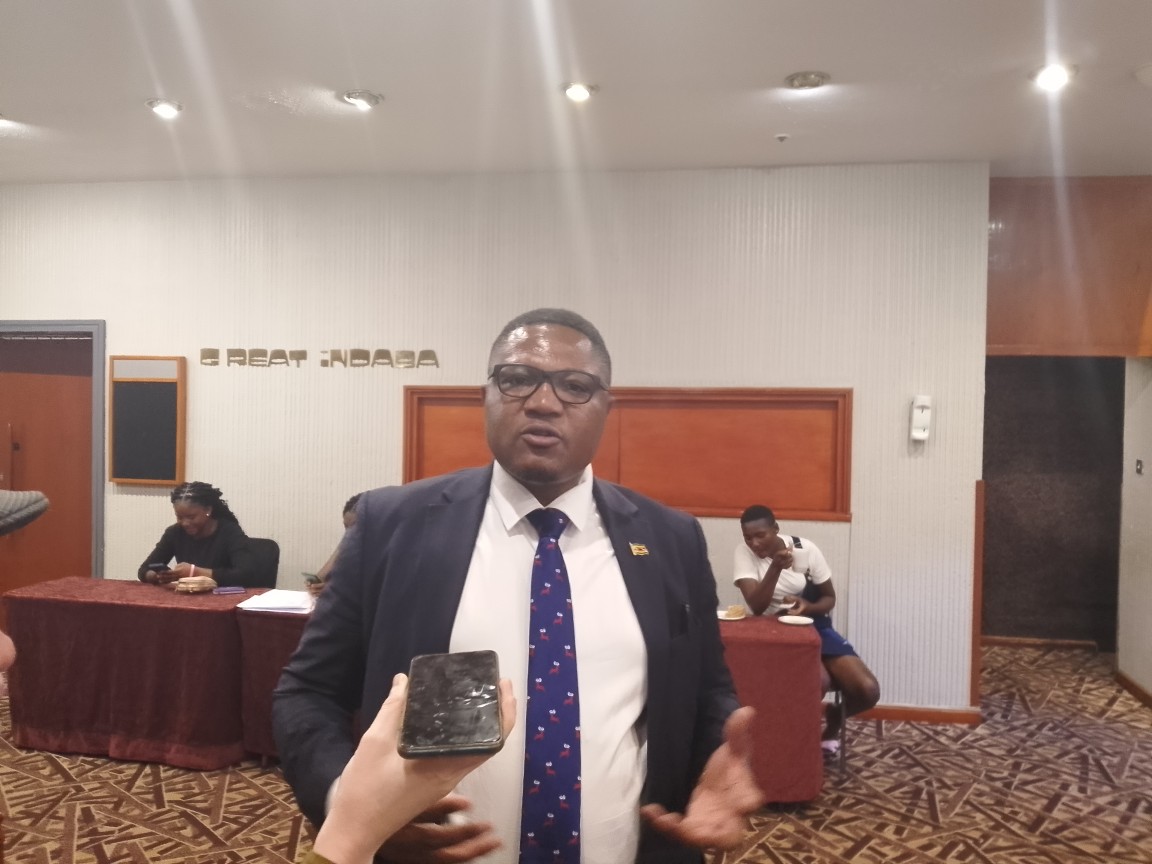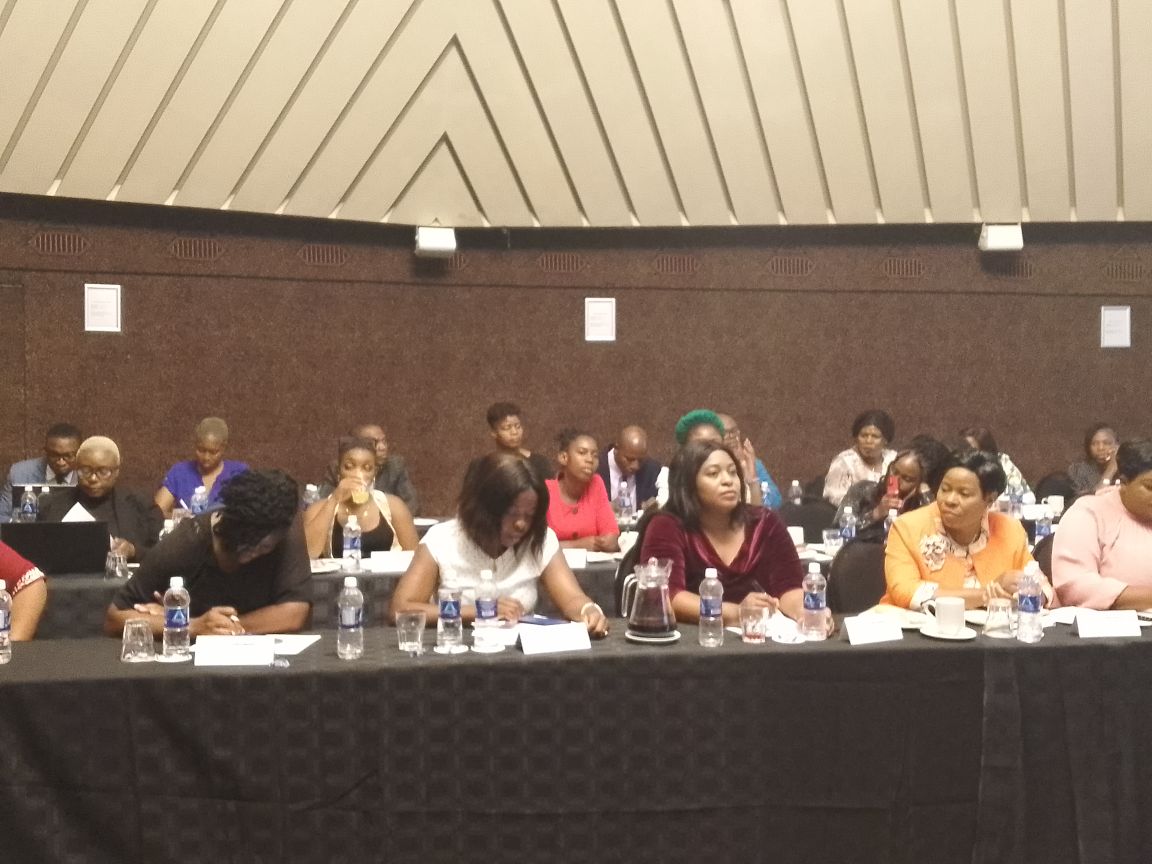|
Getting your Trinity Audio player ready…
|
There is a need for legislation that ensures that sexual reproductive health rights (SRHR) are upheld, Katswe Sisthood has said.
This came to the fore at a meeting to present the SRHR context to the Members of the Parliament’s Thematic Committees on 7 November 2023 in Harare.
Talent Jumo, the Director of Katswe Sistahood painted the SRHR scenario to legislators.
“The Zimbabwean legal system has some glaring inconsistencies concerning the protection of children and women from sexual abuse and related issues. There are patent legal conflicts that leave the service providers and the nation at large with questions regarding the legislators’ intention as far as the protection of children and or young women from sexual violence is concerned.
“The legal dilemma is premised on how consent to sexual intercourse has been conceptualized and translated into law. The major issues are the age of consent to sexual and the absence of a legal definition of consent. This has exposed adolescent girls to sexual exploitation by adults and young women to date rape. The situation is exacerbated by the limited legal and health SGBV response mechanism concerning date rape and child sexual exploitation,” Jumo said.
Katswe is calling on legislators to address the gaps in the legal framework related to sexual offences. It is calling for the harmonization of ages of consent to sexual intercourse and marriage with the definition of a child as provided for by the Constitution.
Legislators were urged to provide legal definitions and guidance in terms of consent to sexual intercourse, date rape, and stealthing.
There is a need to revisit procedures in the justice and health delivery system that victims of sexual offences go through i.e. evidence collection, preservation and presentation in court, issuance termination of pregnancy certificates, and provision of post-exposure prophylaxis.
Through their oversight role, Parliamentarians were urged to ensure the implementation of survivor-centred support for victims of sexual offences. Examples of survivor-centred support include the provision of shelter, social safety nets, and psycho-social support services.
Debra Mwase from Katswe Sistahood said since independence, the Zimbabwean government has adopted various constitutional and criminal measures to protect women and children against violence.
This was achieved through Constitutional amendments; criminalisation of domestic violence through the Domestic Violence Act; strengthening of the laws of rape, including marital rape in the Criminal Code; implementing victim-centered justice system e.g VFU and VFC; and outlawing various harmful practices like child marriage.
Despite the adoption of legislation and policies, violence against women and children remains widespread and perpetrators continue to benefit from impunity.
“Legislators should holistically amend the sexual offences and related legislation to avoid the legal gaps and conflicts as these not only disadvantage the adolescents but are not progressive. When enacting new provisions, to deal with incidents of a sexual nature, the legislature should take note of the existing laws, and their challenges and build on that than enact laws that tend to water down the child protection intentions of the existing laws. A Child Sexual Offences Bill provides an opportunity to enact comprehensive laws that protect children from sexual exploitation,” Mwase said.
Hon Priscilla Moyo, the legislator for Mwenezi West said access to and utilization of contraception is a key aspect of SRHR.
“It empowers women and girls to exercise their sexual and reproductive rights – decide when, how many children to have; to enjoy safe and satisfying sex, etc. Those are some of the freedoms and rights that we should ensure the legislation provides,” Hon Moyo said
The unmet need for contraception (13.4%) is relatively low but still a cause of concern. Unmarried young women who are sexually active remain without access or power to negotiate for use of the same.
Knowledge, acceptance, and access to emergency contraception remains an issue. Addressing contraception access issues is an entry point to addressing other negative SRHR outcomes – unplanned pregnancy, unsafe abortion, HIV/STIs, and early child marriages.
In 2016, an estimated 65,300 induced abortions occurred in Zimbabwe. This translates to a rate of 17 abortions for every 1,000 women aged 15–49.
Adolescent women in Zimbabwe had an estimated 45,000 unintended pregnancies in 2016, accounting for 17% of all unintended pregnancies in the country.
Among women treated for postabortion complications in 2016, 78% had mild or moderate complications and 19% had severe complications. Three percent died or nearly died from complications. (Guttmacher Institute, 2016).
Abortion is legally permitted in the country only under limited circumstances, including if the pregnant woman’s life is in danger or in cases of rape, incest, or fetal impairment. In practice, it is extremely difficult to obtain a legal abortion; as a result, most abortions are clandestine and potentially unsafe.
Speaking in an interview on the sidelines of the meeting, Hon Energy Mutodi, the legislator for Bikita South constituency, said Zimbabwe still frowns on homosexuality.

“Man-to-man sex is criminalised through the ‘Crime of Sodomy’. This drives this key population underground where sexual activity is unsafe and there is no access to services. It is against our culture as Africans for persons of the same sex to have intimate relationships like marriage or having sexual intercourse,” Hon Mutodi said.
